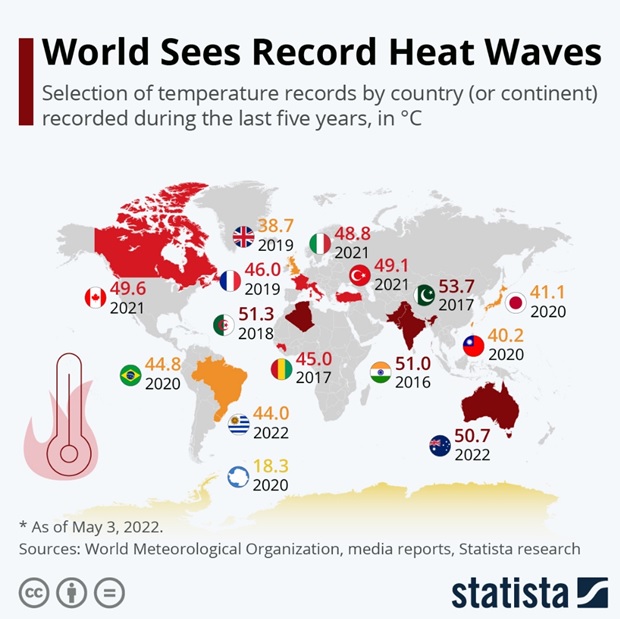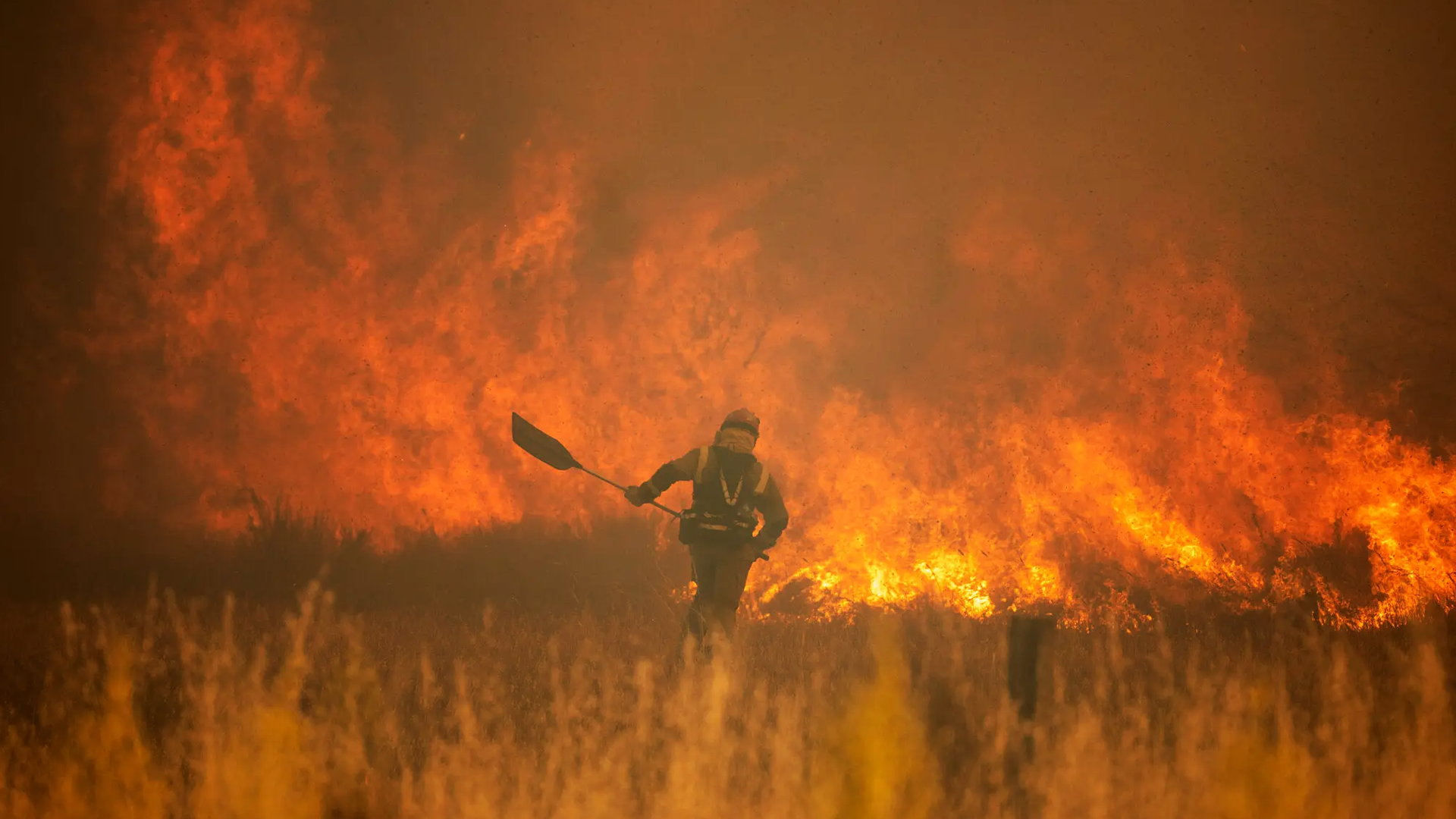From India to Europe and more, climate change is driving increasingly intense and damaging heatwaves as humans struggle to adapt.
The world has been feeling the heat in 2022.
India and Pakistan experienced their hottest March on record this year, exposing many to power and water shortages. Europe, meanwhile, is only just emerging from an unprecedented heatwave, with forecast models indicating any relief will only be temporary across the Iberian Peninsula.
In January, Argentina, Brazil, Uruguay, and Paraguay witnessed droughts and temperatures as high as 45C, threatening crops and agricultural infrastructure.


These record-breaking temperatures now have scientists seeking answers that may help the world avoid such threats to health, water, food, and life in the future.
According to Dr Friederike Otto from The Grantham Institute for Climate Change, ‘climate change is a real game changer when it comes to heatwaves, they have increased in intensity and duration across the world because of our burning of fossil fuels.’
Climate change is set to increase intensity and frequency of heatwaves
Determining when an extreme weather event is attributable to climate change has been a long-time challenge. However, in recent years, extreme event attribution studies have blossomed and become a well-established method for calculating if and the degree to which an extreme event and/or its intensity was caused by climate change.
For India and Pakistan, the March heatwave was found to have been 30 times more likely due to the climate crisis.
The extreme heat in Western North America in June of 2021 would have been ‘virtually impossible without human-caused climate change,’ according to a study by World Weather Attribution.
The recent abnormally high temperatures in the Arctic and Antarctic still lack the consensus to say they were caused by climate change as the events were not predicted in current climate models. However, ‘these kinds of extreme weather events are occurring with more frequency in our warming world,’ says Dr Bethan Davies from the University of London.
Heatwaves are also happening as early as March and April in some countries. France just recently recorded its hottest May ever and the earliest 40C in recorded history in June.
Paired with drought, heatwaves can lead to crop failure and impact water availability. Creating ideal conditions for thunderstorms, infrastructure including homes, roads, and businesses are put at risk. Greater numbers of people are being exposed to heat exhaustion and stroke.
With global average temperatures set to increase by 2.5-2.9 C by 2100, climate scientist Dr Arpita Mondal considers these heatwaves to be ‘[..] a sign of things to come.’





















